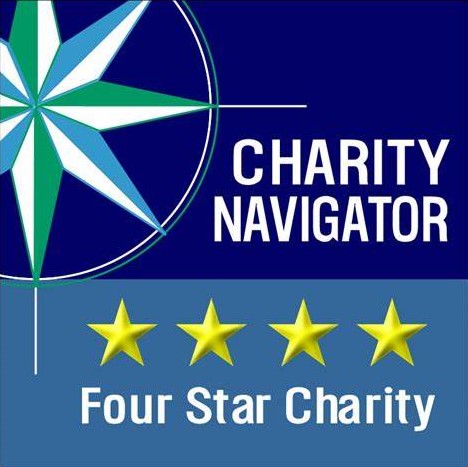
April 2023
Statement of Policy Principles and Solutions: Living Organ Donation
As the leading, independent, national organizations representing patients, organ donors and donor families, transplant surgeons, and other transplant health professionals, the American Association of Kidney Patients (AAKP), the American Society of Transplant Surgeons (ASTS), and the American Society of Transplantation (AST) have consistently championed greater patient choice of and access to organ transplantation, innovation in transplantation, and wise use of taxpayer funds for kidney care.
We stand together in our conviction that any policy changes impacting living organ donation, including those aimed at improving access to living donor transplantation and increasing the survival of already transplanted patients, must begin with principled and transparent dialogue with patients and the expert transplant teams who care for them.
Overview
Transplant professionals continue to make major strides in providing more lifesaving transplants, including pre-emptive transplants before the need for dialysis. These advancements are possible because of the generosity and altruism of living donors and deceased donor families. Living donation is a noble act that is overseen by a complex, carefully vetted, and comprehensive framework of federal and state laws and regulations grounded in ethics. Living donation must recognize the dignity and fundamental human rights of all individuals without coercion or compulsion.
We are fully committed to advancing, in partnership with other stakeholders, improvements that strengthen the system, expand transparency, and increase opportunities for organ transplantation without jeopardizing the ethical foundations and practices that have made the US system uniquely trusted and effective. The United States ranks in the top tier of nations in terms of living donor transplant rates,[1] meaning the current system for living donation works. However, disparities in access to living donor transplantation remain, and we must continue to improve and expand living donor transplantation for those in need. As such, we support policy changes that are patient-centric, fiscally realistic, and ethically and legally sound.
Concerns
Over the past decade some well-intended organizations and advocates have advanced ideas to increase access to living donor transplantation, including direct payments for or large financial incentives for organ transplants, that may appear expedient but can result in serious adverse consequences for transplantation and for patients. Many of these proposals pose serious unintended negative consequences to both donors and to public trust in organ donation. We fundamentally reject efforts to model changes to the current US system based on research or organ transplant practices in nations such as China and Iran whose governments fail to meet or ignore high international and US standards for ethical medical research and basic human rights.
AAKP, ASTS, and AST share the broad-based societal goal of increasing the organ donor pool and organ transplantation, but caution policymakers that proposed changes to living donation involve a complex set of legal, ethical, and clinical concerns that are well-documented in medical literature and federal agency and Congressional proceedings and that would put advances in the field at risk.
PRINCIPLES
SAFEGUARD PATIENT HEALTH AND SAFETY; PREVENT FINANCIAL COERCION
AAKP, ASTS, and AST strongly support the elimination of disincentives to transplantation and adamantly oppose coercive financial incentives to donate.
Our three organizations firmly believe that any new policy related to living donor transplantation should first be vetted through the lens of patient health and safety. In 1984, Congress passed the bipartisan National Organ Transplant Act (NOTA; P.L. 98-507) after substantive deliberations.
NOTA became the guiding law and ethical North Star for this field of life-saving medicine. NOTA created a legal ban on payment for organs (with certain specified exceptions) to address important social and ethical concerns, most notably because the United States determined, as a matter of national policy, that paying for organs would disproportionately harm the poorest and most vulnerable among us.
NOTA made clear that the removal of financial disincentives – as opposed to the provision of financial incentives – is an ethically-based, legally prudent, and meaningful approach to increase living donation. This position has consistently been supported by the transplant community and by America’s diverse faith community.[2]
Any new legislative proposal that includes financial incentives, as opposed to the removal of disincentives, to donate organs should be weighed against the enormous legal and ethical concerns and established precedents under NOTA. Some proposed financial incentives take the form of payment for services not directly related to the cost of the transplant. Such incentives raise serious questions about financial coercion of potential donors which is completely unacceptable.
No living donor should be discriminated against in efforts to obtain, or maintain, disability or life insurance based solely on their decision to donate an organ and their decision to donate should not impact their job security. [3] Further, we believe that the 2018 decision by the U.S. Department of Labor (DOL) to cover many living donors through an extension of the Family Medical Leave Act, as communicated in an opinion letter from the DOL Wage and Hour Division, should be codified in law by the U.S. Congress.
We strongly support legislation[4] to protect patients from insurance discrimination or fear of losing their employment. We advocate for programs[5] that offer public or private financial support as a means of removing financial disincentives for those wishing to donate an organ.
OVERREGULATION OF LIVING DONATION PRESENTS SERIOUS DANGERS
AAKP, ASTS, and AST believe that improvements to the transplant system can best be made through ethically and legally sound, evidence-based, data driven policies informed and guided by patients and transplant professionals rather than by overhauling the entire transplant system.
The transplantation system is a public-private partnership between the federal government and the transplant community and is designed, in part, to prevent overt political influence or other governmental interference in shared patient-physician decision making and clinical judgement. The relationship between patients, including living organ donors, and the doctors and medical institutions they choose to care for them must be protected and respected, as should the ability of individual transplant professionals to make clinical decisions in the best interest of those patients.
Transplantation is heavily regulated by multiple federal agencies, including the Centers for Medicare and Medicaid Services (CMS), the Health Resources Services Administration (HRSA), and two HRSA contractors (the Organ Procurement and Transplantation Network (OPTN) and the Scientific Registry of Transplant Recipients (SRTR)). Transplant centers are subject to duplicative (and often conflicting) requirements and surveys imposed by CMS and the OPTN. Living donor transplant programs are subject to additional scrutiny to ensure that donors are not pressured, coerced, or intimidated into donating an organ. All living donor transplant programs are required to have independent living donor advocates that ensure that donors’ full and informed consent is given with a full understanding of the procedure and its potential risks and consequences.
Into this existing and complex regulatory framework, some organizations are proposing policy and legislative changes that would either expand federal control over transplant by inserting yet another federal agency into the process or overhauling the entire transplant system to give federal agencies, as well as political appointees and politicians, greater authority to regulate living donor transplantation. Exposing the living organ donation system to such political influence and putting decision-making in the hands of non-transplant experts is a mistake with dangerous consequences for patient health, public trust, and donor and patient confidence.
These proposals raise the possibility that the federal government would mandate a “one-size fits all approach” to an incredibly complex set of clinical problems. Such an approach would likely result in fewer innovations and fewer opportunities to reduce barriers to transplantation, especially for historically underserved communities. There are many potential reforms to the transplant system that can be effective, have been suggested by the wider transplant community over the past decade, and should be adopted by Congress and federal agencies. However, any policy or legislative proposal that seeks to amend or replace the existing system with an even larger federal bureaucratic reach with the potential for federal interference in decisions made among organ donors and patients and the doctors and medical institutions they choose to receive care from should be viewed with skepticism.
We oppose policy efforts that seek to place any governmental entity in the position of determining clinical criteria for living donor transplantation or otherwise interfering with the relationship between and among potential recipients, potential donors, and their caregivers.
SOLUTIONS
AAKP, ASTS, and AST are driving important changes in transplantation and will continue to work to address disparities and lack of access to living donor transplantation in four very important ways.
Removing Disincentives to Transplant
AAKP, ASTS, and AST have and continue to work closely with Executive Branch agencies and Congress to improve access to transplantation. Together with the larger kidney community, significant improvements have been made over the past decade including the 2013 enactment of the HIV Organ Policy Equity (HOPE) law, the 2018 extension of FMLA protections to many living organ donors by the Department of Labor, the 2019 Executive Order on Advancing American Kidney Health, and the 2020 Comprehensive Immunosuppressive Drug Coverage for Kidney Transplant Patients Act.[6] We are also working closely with allies across the kidney community and Congressional champions to gain passage of the Living Donor Protection Act.
Partnership with CMMI to Foster Innovation in Transplantation
We are actively engaged with the Centers for Medicare and Medicaid Innovation (CMMI) in creating a living donor demonstration project to address the pressing need to increase access to and reduce the lack of opportunity for living donor kidney transplantation among rural and historically underserved communities. As noted by the National Academies of Science and Medicine (NASEM)[7], variation in access to living donor transplantation is the largest disparity in the transplant ecosystem. The proposed CMMI demonstration model seeks to increase opportunity for and access to living donor transplantation by encouraging organizations to network with local primary care and nephrology groups, dialysis centers, and community organizations (including those affiliated with faith communities). Participating transplant programs and others involved would share in the savings achieved by increasing living donor transplantation over historical (baseline) rates, while addressing disparities and gathering data to drive development of new policy initiatives. A well-designed, patient-centered, and fiscally responsible demonstration program may be among the most effective and ethically responsible means to increase living donation and address disparities.
Encourage FDA to Improve Innovation in Transplant Therapeutics
Long-term outcomes of transplanted organs have improved only minimally over the past two decades relative to the dramatic improvements with outstanding patient and graft survival at one year, and infrequent episodes of acute cellular rejection at one year. The stakeholders within the transplant community with the most to lose from this lack of improvement – current kidney transplant recipients, patients with kidney failure awaiting transplantation, and potential living organ donors – are aware of this reality and expect timely innovation and access. Our groups stand with the Transplant Therapeutics Consortium (TTC) in attributing the failure to materially improve long-term outcomes to be a consequence of using outcome measures that focus on short-term outcomes that do not translate into better long-term graft survival, function, and patient-centered quality of life. Limited long-term survival of transplanted organs contributes to increased patient death (return to dialysis carries a very high risk of mortality- nearly 50% at five years), increased costs to taxpayers, reduced quality of life, and consumes donated organs that would otherwise have been transplanted into patients in need of a first transplant. National consensus kidney policy prioritizes transplantation as the best therapy for kidney failure and calls for increased opportunities for transplantation through innovation, including innovation in transplant medicine.
Facilitate More Transplant Research
There is a pressing need for Congress and NIH to improve and invigorate transplant-related research. Under the NIH organizational structure, transplant research is dispersed among three different Institutes, rather than centralized in a single Institute. More research is needed in the fields of regenerative medicine, strategies to improve organ allocation, surgical innovation, and others, many of which have the potential to increase access to and improve outcomes of living donor transplantation. We encourage greater collaboration and resource sharing from private sector partners to NIH as Congress considers new investments in NIH programs that advance transplant-related science.
Medicare Should Optimize Transparency, Access to Services for Medicare Beneficiaries/Enrollees:
We deeply appreciate CMS’ recent efforts to improve the transparency and access to services provided by Medicare Advantage (MA) plans to Medicare enrollees. These issues are of growing interest to our organizations because kidney transplantation is the treatment of choice for End Stage Renal Disease (ESRD), and ESRD-eligible Medicare beneficiaries became eligible to enroll in MA plans for the first time in 2021. Over 40,000 Medicare Fee-for-Service (FFS) patients with end-stage renal disease (ESRD) elected to enroll in Medicare Advantage (MA) during the 2021 open enrollment period, representing a 23% to 30% increase in ESRD beneficiaries enrolled in MA. [8]
We are deeply concerned that MA plans may sharply limit the number of potential living donors that may be evaluated for a “match” and may impose other restrictions on payment for medical services related to living donation - limits not imposed when the potential recipient is in traditional Medicare. Such limits are unethical, and we urge CMS to address this issue immediately. Given the growing proportion of ESRD-eligible Medicare beneficiaries enrolled in MA plans, and recent public announcements by MA providers related to their expansion into states with high ESRD prevalence, it is critical that CMS ensure equal access and comparable provision of services for Medicare fee-for-service (FFS) beneficiaries and MA enrollees seeking transplantation and for living donor candidates for those beneficiaries. Failure to address this issue will exacerbate disparities and access to life-saving organs.
AAKP, ASTS, and AST believe that the best ways to greatly increase access to living donor transplantation are to remove disincentives to transplant, partner with CMMI to foster innovation in transplant, increase commitment to transplant research, and improve Medicare transparency and access to transplantation.
Congress and the Administration can and should do more to encourage access to living donor organ transplantation. We should work together to build upon past successes to remove barriers to transplant by removing financial disincentives, addressing and mitigating the lack of alignment in federal programs and goals to increase transplantation, and continuing to work with patient and provider organizations to ensure that financial interests or incentives do not endanger the public. The kidney community is committed to increasing transplant numbers, quality, and access – and that can be accomplished through data-driven and thoughtful change that protects patient safety and health and fully preserves ethical organ donation.
For further information, contact AAKP’s Diana Clynes, dclynes@aakp.org; ASTS’s Peggy Tighe, Peggy.Tighe@PowersLaw.com; or AST’s Bill Applegate, BApplegate@polsinelli.com.
[1] Arshad A., Anderson, B. Sharif, A. Comparison of organ donation and transplantation
rates between opt-out and opt-in systems. Kidney International (2019) 95, 1453–1460; https://doi.org/10.1016/
j.kint.2019.01.036. https://www.sciencedirect.com/science/article/pii/S0085253819301851#appsec1.
[2] See “Theological perspective on organ and tissue donation” https://unos.org/transplant/facts/theological-perspective-on-organ-and-tissue-donation/ Access April 11, 2023.
[3] See AAKP, ASTS, AST Joint Statement on Living Donor Comprehensive Living Donor Protections, https://aakp.org/statement-on-comprehensive-living-organ-donor-protections/.
[4] The HIV Organ Policy Equity Act (HOPE Act), Public Law No: 113-51.H.R.5534 - 116th Congress (2019-2020): Comprehensive Immunosuppressive Drug Coverage for Kidney Transplant Patients Act of 2020, H.R.5534, 116th Cong. (2020), https://www.congress.gov/bill/116th-congress/house-bill/5534/text.
[5] See, e,g, the National Living Donor Assistance Center at https://www.livingdonorassistance.org/.
[6] Section 120 of the Consolidated Appropriations Act, 2021 (CAA), Public Law (Pub. L.) 116-260, Division CC, title I, section 120 (December 27, 2020).
[7] https://www.nationalacademies.org/our-work/a-fairer-and-more-equitable-cost-effective-and-transparent-system-of-donor-organ-procurement-allocation-and-distribution. See also ASTS/AST response at https://www.myast.org/sites/default/files/2022.08.26%20AST-ASTS%20NASEM%20Report%20Response%20FINAL.pdf
[8] Kazan M, Gooding, M, Kornfield, T. ESRD Enrollment in MA Now Exceeds 30 Percent of all Dialysis Patients (Dec. 16, 2021)






























